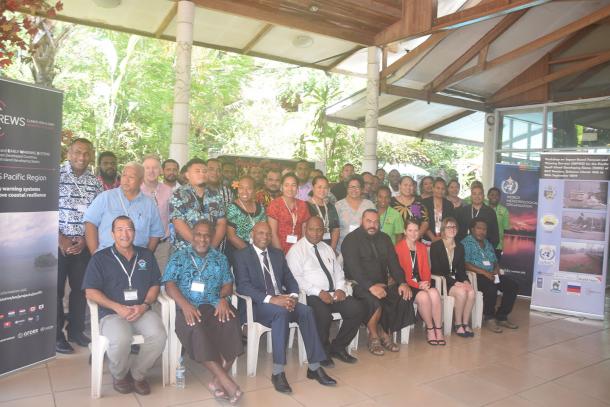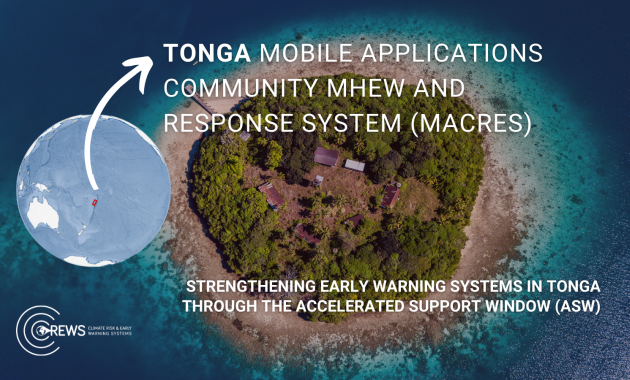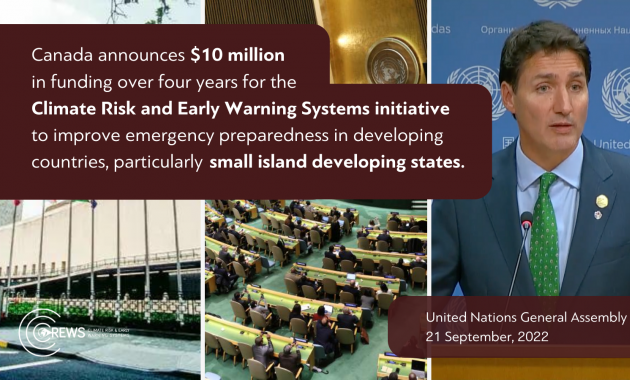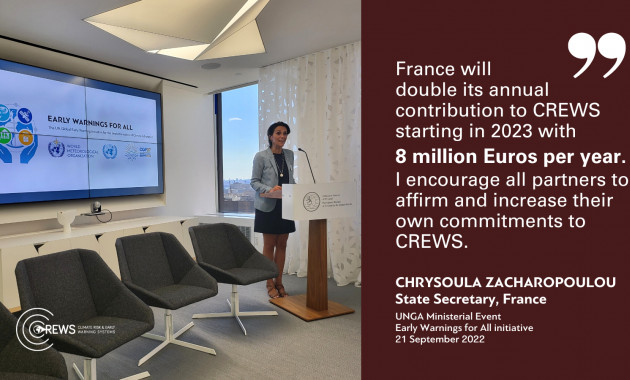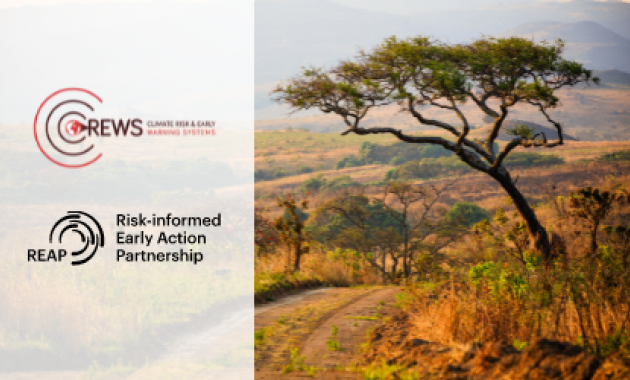Tropical cyclones are a regular hydro-meteorological hazard in the Pacific region, with the associated heavy rainfall, flash floods, landslides, high seas and winds causing loss of life and major socio-economic losses. Sea level rise and the projected increase in climate related extreme events as a result of climate change is increasing the challenge.
WMO is therefore working with its Members, regional and international partners to improve resilience in some of the world’s most vulnerable nations.
A WMO workshop in Honiara, Solomon Islands, from 16 to 20 September 2019, provided training on how to provide impact-based forecast and early warning services to local communities.
The workshop was attended by 70 participants from National Meteorological and Hydrological Services (NMHSs) and National Disaster Management Offices in the Pacific, as well as international and regional development organizations and media partners.
“English language is our third language an, scientific forecasts and warnings can be very complex. So it makes sense not to only understand the forecasts and warnings but also the likely impacts if there are any. Warnings are only as good as people’s understanding of them,” said Culwick Togamana, the Minister of Environment, Climate Change, Disaster Management and Meteorology of the Solomon Islands.
The workshop demonstrated the paradigm shift from forecasting and early warnings using hydro-meteorological parameters to warnings based on impact and vulnerability. In other words, moving from “what the weather will be to what the weather will do.
Participants also discussed the need for improved communication to the communities to tell the people what is going to happen, when, where and how serious.
Some Pacific SIDS have already started implementing impact-based forecasts and warning services, but the workshop deepened understanding of the need for shared responsibility and knowledge about risks and vulnerability, and close coordination between meteorological and disaster management services and local communities.
The workshop was organized by WMO and the WMO Climate Risks Early Warning System Risks Early Warning System (CREWS) Pacific SIDS Project. This is funded by the CREWS Initiative, and Environment and Climate Change Canada (ECCC); UNDP Disaster Resilience for Pacific SIDS (RESPAC) Project funded by the Government of Russia; World Bank Pacific Resilience Project (PREP); and the Government of the Solomon Islands.

